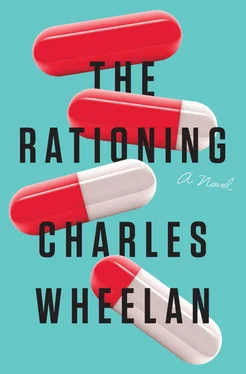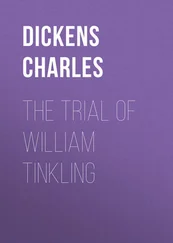“I remember. I’m not sure the Indian PM is as bad as that,” the Ambassador said.
“No, but he certainly doesn’t care whether eighty-five-year-olds in the U.S. die because they can’t get Dormigen,” the Strategist pointed out. “This is all about him, so make him a hero in India.”
“Luvardnik really was an asshole, wasn’t he?” the Ambassador reflected.
“You know the drill,” the Strategist said.
“Twelve years in the Senate did teach me a few things.”
“Then go get us some Dormigen.” And then the strategist added, “And don’t pay the bill.”
“We’re meeting at a pizza parlor,” the Ambassador pointed out.
“I don’t care if it’s three dollars. You’re doing him a favor, so he pays the bill. That’s really important.”
“Okay, maybe I’ll order dessert,” the Ambassador said jokingly.
“Even better,” the Strategist answered, not joking at all.
The California Pizza Kitchen was deep in the New India Mall, past every manner of Western shop and up an escalator that passed over a garish fountain in which an elephant was shooting water from its trunk. The mall was busy with shoppers—an occasional tourist but mostly locals seeking out a clean, orderly place to shop for the same reason Americans do. The Ambassador had never been to the mall before, though the head of the embassy’s Economic Section often used it as an example of India’s growing middle class. The Ambassador made his way to the food court before recognizing that the restaurants were scattered elsewhere. By the time he reached the California Pizza Kitchen, he was several minutes late. The Ambassador recognized Sumer Patel, one of the Prime Minister’s trusted lieutenants (albeit with an ambiguous official portfolio), sitting at a table near the door looking somewhat impatient. The Strategist would be proud of him for keeping Patel waiting, the Ambassador thought, even if it was an accident. The Ambassador and Patel had met several times before; they reintroduced themselves and exchanged pleasantries. Eventually Patel broached the substance of the meeting: “I watched the President’s speech.”
“We’ve got ourselves in a bit of a pickle,” the Ambassador said. Patel had attended university in the U.S. and was familiar with the idioms and slang.
“The Prime Minister feels this may be an opportunity to take the U.S.-India relationship to a new level,” Patel said.
“How so?” the Ambassador asked solicitously.
“The Prime Minister is now confident we will have excess Dormigen over the next week.”
The Ambassador raised an eyebrow, suggesting surprise and interest. “On what scale?”
“Perhaps enough to close your gap.”
“There are a lot of lives at stake,” the Ambassador said. At that moment, a male waiter approached the table to take drink orders. Patel waved him away angrily, telling him in Hindi to come back later.
“The Prime Minister recognizes the gravity of what is happening,” Patel said.
The Ambassador replied, “As you may or may not know, we made an overture earlier and it was not well received. If I recall correctly—”
Patel waved his hand dismissively. “The circumstances have changed.”
“They have,” the Ambassador agreed. “With China, in particular.”
“That was a terrible embarrassment,” Patel said, shaking his head.
“An embarrassment?” the Ambassador asked with concern. “An embarrassment for…”
“China,” Patel said emphatically. The waiter returned, once again drawing an angry look from Patel.
“Maybe we should just order,” the Ambassador said.
“I’ll have a Coke Zero and a pizza,” Patel said sharply.
“Sir, we have many kinds of pizza,” the waiter replied.
“Veggie.”
“Yes, sir, one veggie pizza,” the waiter said.
“I’ll have the same,” the Ambassador said.
“With Coke Zero?” the waiter asked.
“Yes,” the Ambassador said. The waiter acknowledged the order with a slight nod of his head. As he walked away, the Ambassador continued to Patel, “Please tell the Prime Minister that we are prepared to make some serious gestures to express our gratitude—to take our bilateral relationship to a new level, as you say.” The Ambassador listed several diplomatic issues the Americans and Indians had been wrangling over in recent years: cooperation on India’s civil nuclear program; more aggressive intelligence-sharing regarding Pakistan; raising the U.S. cap on H-1B visas for skilled workers. Patel nodded in approval as the Ambassador ticked off the list, all of which happened to be initiatives he had been pushing the State Department and the White House to act on anyway. “We can create a political win here for the Prime Minister,” the Ambassador assured Patel.
“Yes, these are significant gestures,” Patel agreed. “The White House has signed off on all of this?”
“Of course,” the Ambassador assured him. There was a brief silence as Patel absorbed the offer on the table. The Ambassador continued, “One thing to appreciate here is that China is trying to exploit our crisis in the U.S. The things they are asking for would make us weaker. It’s predatory. The things you and I are discussing here, on the other hand, are measures that would strengthen the U.S.-India relationship. The world’s two most important democracies, working together.”
“Yes, of course,” Patel agreed. Silence settled over the table as Patel contemplated the situation. The Ambassador had a strong sense of what direction the conversation would likely turn. They were approaching the money moment. The next minute or so would likely determine whether the Strategist would lose a testicle or not. The waiter appeared with drinks, giving Patel more time to cogitate on the situation. As the waiter walked out of earshot, Patel said, “The world’s two most important democracies, but India is very much the junior partner.”
“India has three times the population of the United States,” the Ambassador replied.
“Exactly, and yet…” Patel let the dissatisfaction with the relationship just kind of hang there.
“The President would be very happy to publicly thank the Prime Minister and the country for their generosity,” the Ambassador said.
“Yes?” Patel replied, his face brightening.
The Ambassador continued: “We will have to work on the scheduling, but the PM could do a state visit, perhaps at the beginning of next year. We could use the visit as an opportunity to announce all these agreements.”
Patel’s excitement dissipated immediately. The pizzas arrived. “May I get you anything else?” the waiter asked in English with a pleasant, lilting accent. Patel told him brusquely in Hindi to go away and the two men ate in silence.
Eventually Patel asked, “May I speak candidly?”
“Of course.”
“The Prime Minister has an election coming up.”
“His party is in a spot of political trouble,” the Ambassador said, “if I may speak candidly.”
“The Prime Minister is hoping for something…”
“With more immediate political payoff,” the Ambassador said, making explicit what Patel could not bring himself to say. Patel grimaced at the coarseness of the statement but did not disagree. The Ambassador continued with just a hint of mock outrage, “A lot of people are going to die in the United States.”
“And we would like to prevent that,” Patel assured him. “That is why I am here. The Prime Minister is just hoping we can create a win for everyone.”
“The polls I’ve seen suggest that public opinion in your country is strongly in favor of offering Dormigen to the United States,” the Ambassador pointed out.
“Yes!” Patel agreed. “That’s exactly what we would like to leverage. Can we make everyone a winner here?”
Читать дальше












